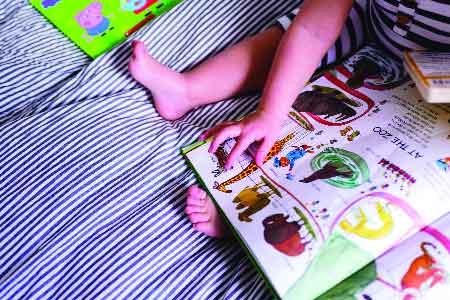Developing good reading habits in children is essential. Pankaj Kumar Singh tells you how
We live in an age of digitisation. Our worlds often rotate around our screens and smartphones. Across the world today, parents, teachers and early childhood caregivers are grappling with an issue — how best to steer our children across all ages, away from the virtual world and more specifically, towards reading. The reasons for this are numerous. Studies after studies have shown us, that reading has widespread benefits across cognitive and psychological domains in children.
Good reading habits have effects that reach well beyond childhood in the adult life. Apart from the obvious result of expanding knowledge range in topics one reads about, reading improves ability to synthesise information from data sources, improves attention span as well as ability to focus on a task and in many ways result in a calmer temperament.
Educators across the globe have been telling us, backed by neuroscience data, that reading from books is also a better approach than soaking up knowledge from a screen. This is especially true of children. And quite alarmingly, a recent thorough study from NIH has shown that children who are exposed to screens beyond a certain number of hours every day show evidence of structural alterations in the brain, and those changes are definitely not for the better.
But the million-dollar question remains, how do we raise our children to become interested and engaged readers in a world that is now, more than ever, filled with distractions and instant gratifications?
The best answer for this is to look at how children learn behaviors. Most commonly, they learn by imitation, that is, they model behavior they grow up watching around them. If you are an avid reader yourself, you’re halfway there already. Your child is likely to reach for books when they see you reaching for it as a source of pleasure.
Being read to, every day, is another very good way of inculcating reading as a habit. Young children love listening to their parents speak, so book time before it is time to tuck in every night works wonders. Let them pick a book they like, and read it together.
Setup a cozy environment when you’re reading with your child. A cozy corner of the room with adequate but not harsh lighting works just fine.
When they start reading, try not to moderate the books they pick too much. Children can sometimes come to see reading as a chore and not an activity to enjoy, if they are dictated about everything they read too minutely. That puts them off from loving the activity.
The writer is MD, Cambridge School


























